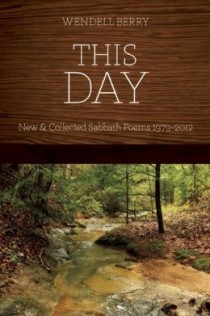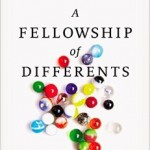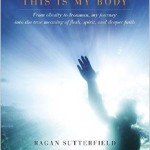 My pick for the most important book of 2013 is the new collection of Wendell Berry’s Sabbath Poems, entitled This Day.
My pick for the most important book of 2013 is the new collection of Wendell Berry’s Sabbath Poems, entitled This Day.
I’ll admit that it was a really close call between this book and David Mikics’s volume Slow Reading in a Hurried Age, but Berry’s book wins by a nose as it takes a broader view, and offers not only carefully-crafted poems, but a way of living and being in the world. Slow Reading starts to move in the same direction, but never seems to look much beyond the scope of the reader, his or her book and its author.
I posted a sample poem from Berry’s collection on this blog several weeks ago: Will-lessly The Leaves Fall.
Here’s a little sample of what I wrote about this book for the (very late) Advent issue of The Englewood Review of Books, which is at the printer now:
Following the wisdom of British ecologist Sir Albert Howard – who maintained that: “To learn to preserve the fertility of the farm, we must study the forest” – Berry sought to recover a kind of agriculture that was strikingly different from the industrial sort that was beginning to emerge at that time. In the course of studying the forest, Berry began to venture into these woods every Sunday, and in 1979, he started writing a series of Sabbath poems based on his Sunday jaunts into these woods. These poems that were mostly written in the woods, were not intended, Berry emphasizes, as public poems, but rather as meditations. In the Preface to A Timbered Choir, an early collection of these Sabbath poems, included in This Day, Berry writes:
These poems were written in silence, in solitude, mainly out of doors. A reader will like them best, I think, who reads them in similar circumstances – at least in a quiet room. They would be most favorably heard if read aloud into a kind of quietness that is not afforded by any public place. I hope that some readers will read them as they were written: slowly, and with more patience than effort.
In this recommendation to the reader, Berry gets to the heart of why I believe his Sabbath poems will be his greatest literary legacy: they are more than words on a page; they are a way of being, embodied by the poet and recommended to the reader. These Sabbath poems cannot be understood apart from Berry’s labors, as a farmer and as a writer, but they are of a different sort, received as a gift.
In the very first Sabbath poem, Berry writes:
I go among trees and sit still.
All my stirring becomes quiet
around me like circles on water.
My tasks lie in their places
where I left them, asleep like cattle.
…
After days of labor,
mute in my consternations,
I hear my song at last,
and I sing it, as we sing,
the day turns, the trees move.
(1979, I)
Berry’s Sabbath poems reflect – and invite us into – a way of life that leads us toward health, well-being and indeed salvation.
…
Berry closes the volume with another of his Mad Farmer poems, in which he conjures an image pertinent to this Advent season, that of the Christ child, whose coming was proclaimed with the singing of angels: “On earth / peace, good will.” The Mad Farmer solemnly recognizes how far we have drifted from this vision of peace on earth. Although he “fears the time to come,” the Mad Farmer, who understands himself as “a pilgrim in the foreshadow / of apocalypse, toward the almost forgotten / light far beyond the polluted river, / the blasted mountains, the killed children, the bombed / villages haunted already by the hurting bodies of their dead.” (2012, XXI).
Indeed, this is a fitting image to leave emblazoned on the mind of the reader at the close of this volume. It is Berry’s keen hope in the future beyond time to come, this “almost forgotten light” that distinguish these poems. Although this dim light of hope shines through all of Wendell Berry’s writings, these Sabbath poems will very likely be his greatest legacy, because they not only turn our attention toward this light, but in the very intentional Sabbath practices out of which they were born, Berry guides us in a narrow way forward toward this light of hope, a way that is not defined by progress or profits, but by an increasing attentiveness to our membership in the rich family of nature in our own particular places. This Sabbath way is a hope that cannot be taken from us, by the wealthy or the powerful (2007, VI), but rather is the hope of our salvation, the way embodied by Christ himself, and heralded by angels with songs of peace and good will at its in-breaking at Bethlehem. May we have the ears to hear and the courage to follow Berry’s lead in this ancient and almost forgotten way.












